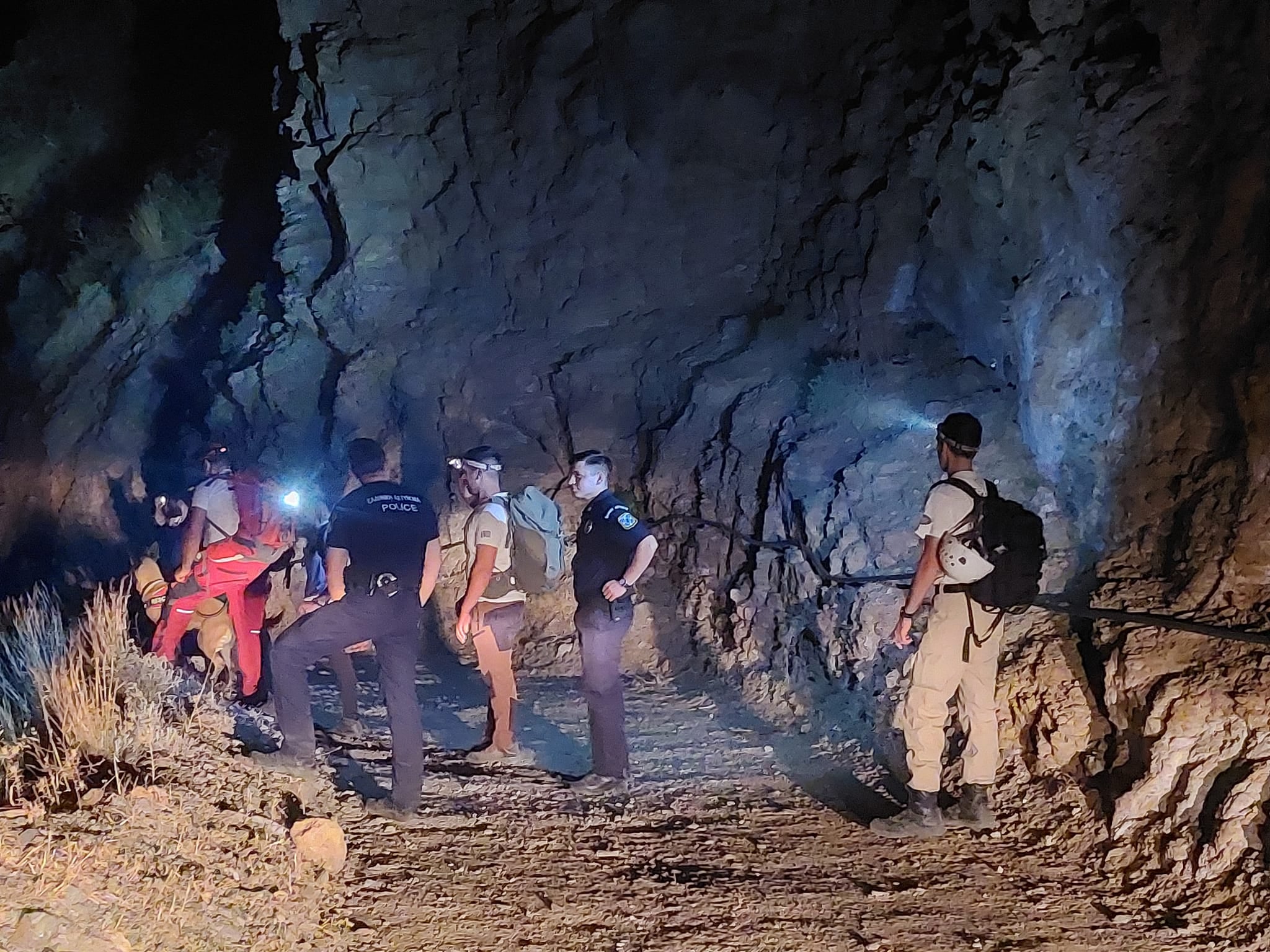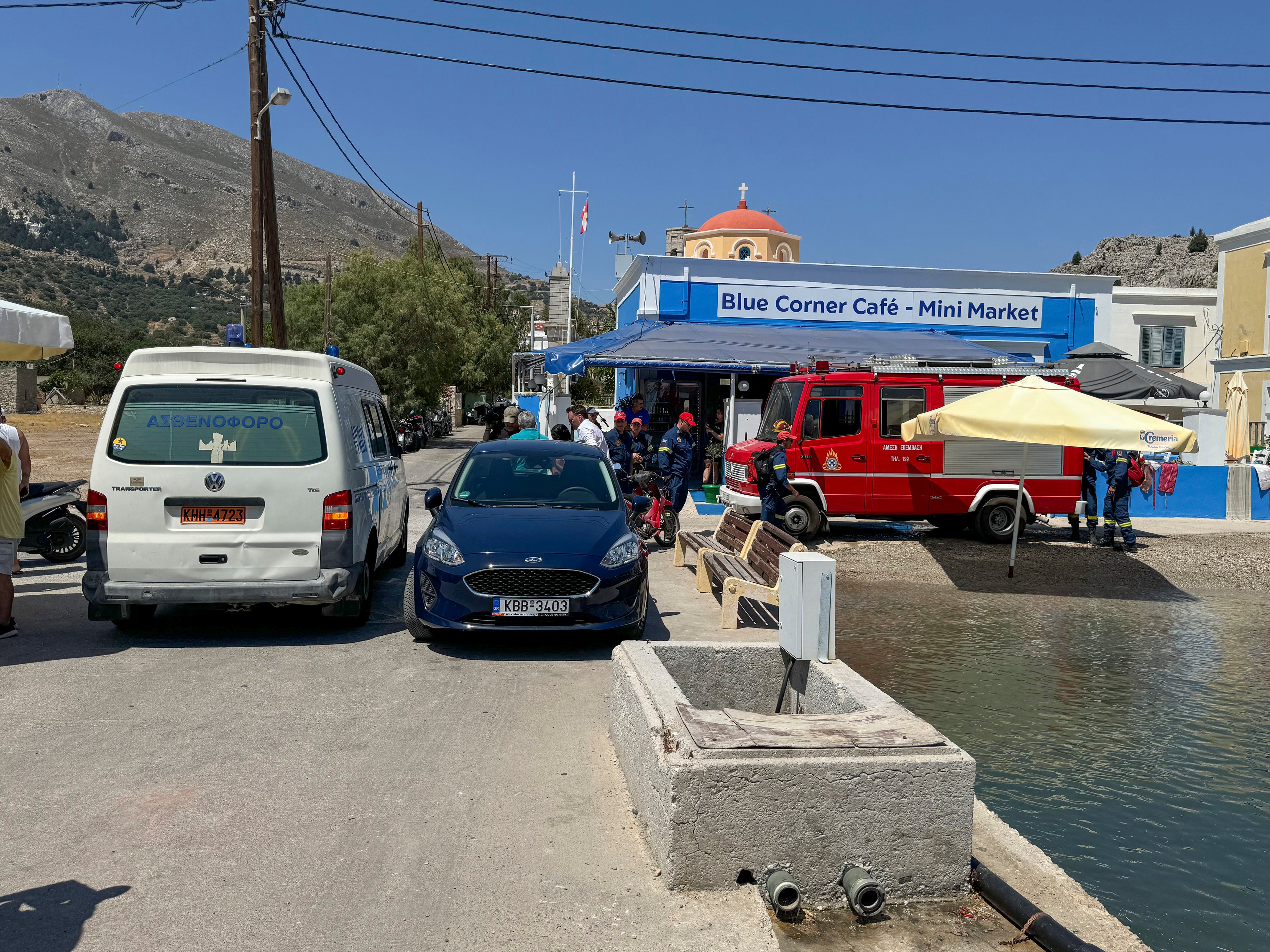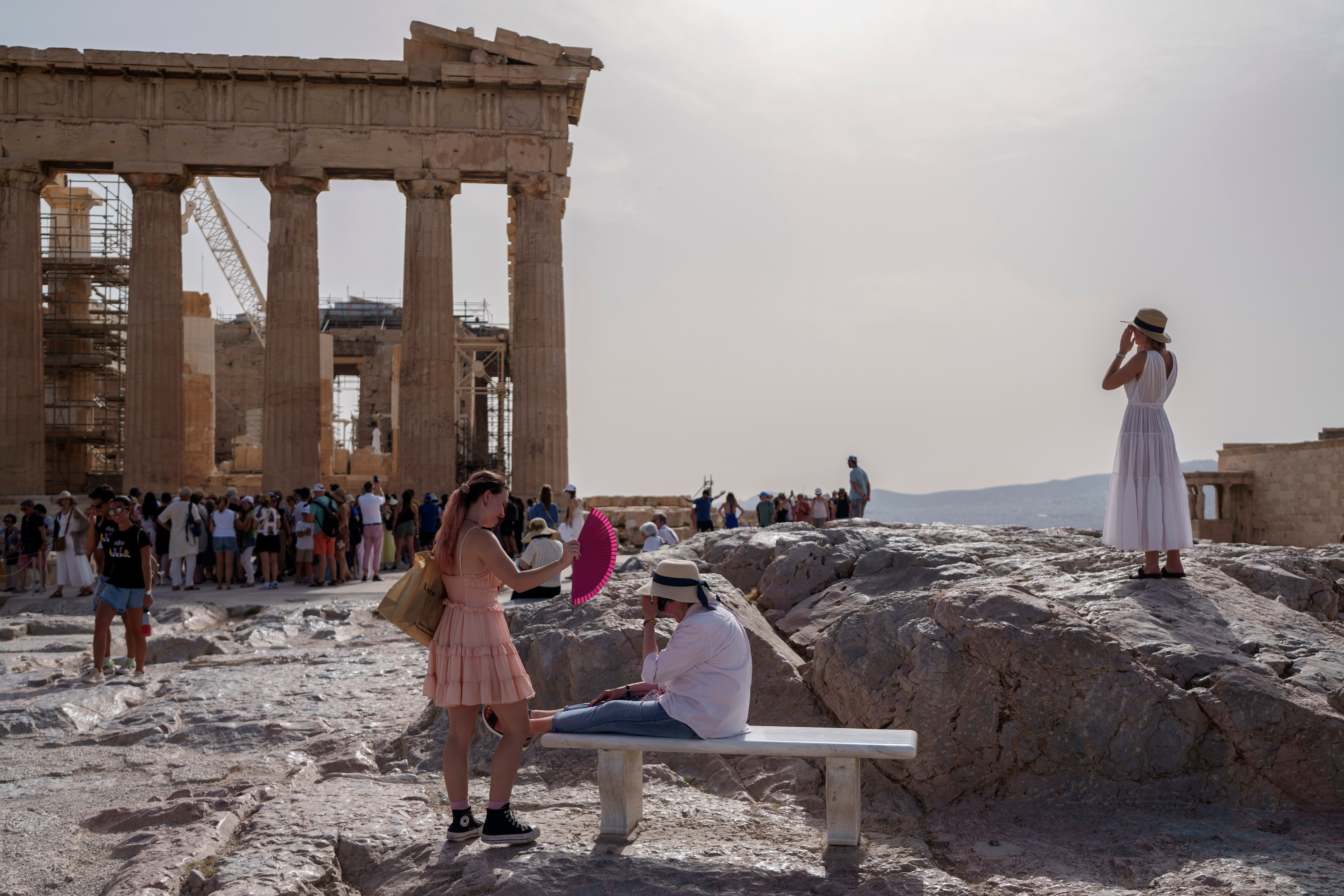While the tragic death of Dr Michael Mosely made headlines in the UK, at least four other visitors have died in recent weeks on the idyllic Greek islands, in the grip of a heatwave meteorologists say will “go down in history”.
In some areas, people have been told to stay indoors between 11am and 3pm in the scorching early-summer weather amid fears of heat-related deaths.
Experts believe the heatwave could be a devastating sign of summers to come, with the country set to be on the frontline of global warming. Greece’s longest heatwave on record, lasting 16 days, was recorded in July last year.

This week, the Acropolis in Athens was closed by the authorities, as were schools and nurseries, as temperatures soared to 43C in places.
Meteorologist Panos Giannopoulos told Greek state television channel ERT: “This heatwave will go down in history. In the 20th century, we never had a heatwave before 19 June. We have had several in the 21st century, but none before 15 June.”
Several cases of tourists dying or going missing have come after people set out on hikes in soaring temperatures. According to the National Observatory of Athens, the highest temperature in the country was registered at Lefkochori in Fthiotida, Central Greece, and was 43.2C, followed by Sparta, in southern Peloponnese, with 43.1C.
Dr Mosley was found dead on the island of Symi earlier this month following an extensive search. A coroner concluded that he had died shortly after going for a hike over difficult, rocky terrain on 5 June.

His death sparked an outpouring of tributes back home in the UK, but he is not the only person to have gone missing this month.
On Sunday, search teams found the body of an American tourist on the small Greek island of Mathraki, while the remains of a missing Dutch tourist were found on Saturday on the eastern Greek island of Samos.
The 74-year-old had recently moved to the island and was reported missing by his wife. A body was found in a gorge, around 800 meters away from Limnionas.
The as yet unnamed tourist had been seen walking with some difficulty in the blistering heat by a local resident.
On 5 June, another Dutch tourist, 67, collapsed and died of a heart attack while crossing the Mylon gorge in Rethymno, Crete as temperatures reached 40C.

The next day, on the same island, a 70-year-old French tourist died while walking on a deserted beach between Kouremenos and Zakros in Sitia. Paramedics managed to reach her but were unable to save her life.
According to Dimitris Kalatzis, who heads up the Samos rescue team, missions are often made more difficult because tourists, frequently unaware of the risks, veer off track to see sites and get lost.
He told local media: “Yesterday we saw a couple [of foreigners] walking a trail in 41C without hats. It defies logic.”

Rescue teams are still looking for the two French women, aged 64 and 73, who stayed at different hotels on Sikinos island in the Cyclades. The women are believed to have known each other.
Dubbed “The Island of Wine”, Sikionos is one of the less touristic islands of the Aegean with a population of only 386 people.
And it is not just the islands that are being affected by the extreme heat. In Athens, the world-famous Acropolis, set on a rocky hill overlooking the capital, and other nearby tourist attractions were closed on Thursday afternoon as winds from North Africa pushed temperatures towards 43 degrees Celsius (109 degrees Fahrenheit).
Firefighters who put out several wildfires on Wednesday remained on high alert as strong winds were expected to hit several parts of the country.

Athens, a city of five million people which sits in a coastal bowl jammed with apartment blocks and flanked by mountains, is one of the hottest cities in Europe.
Scientists warn that summer temperatures there could rise by an average of two degrees by 2050. Athens mayor Haris Doukas has tried to create more shade by planting 2,000 trees.
Temperatures across the country began to ease on Friday, with forecasters saying the heat will return to average for this time of year at 31 to 33 degrees.
The Foreign Office has said travellers heading to Greece should “be cautious if you are in or near an area affected by wildfires”.
It added that tourists should:
- follow the guidance of the emergency services
- call the Greek Emergency Services on 112 if you are in immediate danger
- contact your airline or travel operator who can assist you with return travel to the UK

